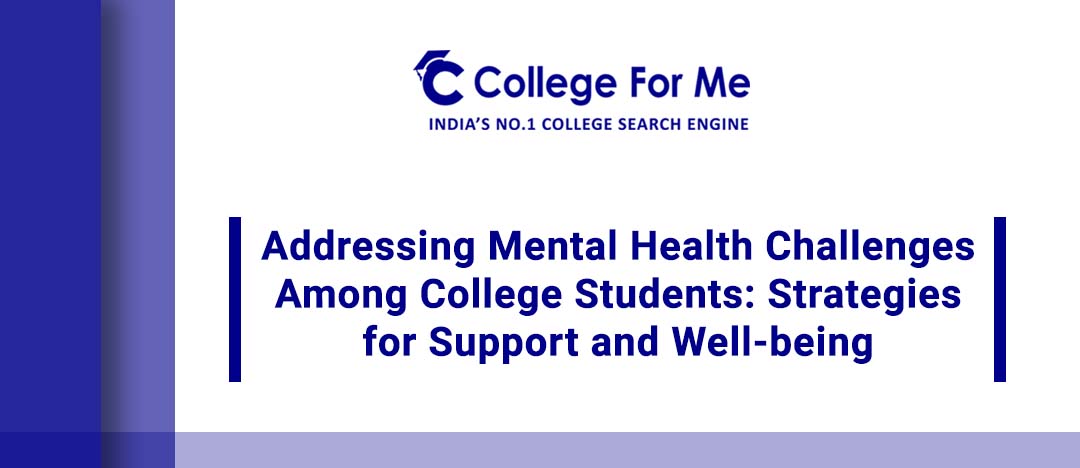Career Scopes Of A B.Tech. Student
There is a high demand for B.Tech. degree holders in the private sector, yet, there is also the opti...

College is often an exciting and transformative time, but it can also be a period of significant stress and mental health challenges for many students. The transition to a new environment, academic pressures, social expectations, and other factors can take a toll on students' well-being.
In this blog, we will explore the mental health challenges faced by college students and discuss strategies to provide support and promote overall well-being on campus.
Raising Awareness and Reducing Stigma:
Start by raising awareness about mental health issues and reducing the stigma surrounding them. Promote open and honest conversations about mental health, fostering an environment where students feel comfortable seeking help without fear of judgment or discrimination.
Strengthening Support Systems:
Develop and enhance support systems on campus, including couseling services, peer support groups, and mental health awareness campaigns. Ensure that students have easy access to confidential and non-judgmental resources for seeking help and support.
Promoting Self-Care and Stress Management:
Educate students about the importance of self-care and stress management techniques. Encourage practices such as regular exercise, healthy eating, sufficient sleep, and relaxation exercises. Provide workshops and resources on stress reduction and time management skills to help students maintain a healthy work-life balance.
Establishing Mental Health Programs:
Invest in comprehensive mental health programs that address the unique needs of college students. Offer workshops and seminars on topics like mindfulness, resilience, and emotional intelligence. Provide training for faculty and staff on recognizing and responding to mental health concerns among students.
Fostering a Sense of Belonging:
Create a sense of community and belonging on campus to help students feel connected and supported. Encourage the formation of student clubs, organizations, and events that promote inclusivity and social interaction. Peer mentoring programs and buddy systems can also provide valuable support networks.
Integrating Mental Health into the Curriculum:
Integrate mental health education and awareness into the college curriculum. Include discussions on mental health, well-being, and coping strategies in relevant courses to equip students with knowledge and skills to navigate their own mental health challenges and support others.
Collaboration with Local Mental Health Services:
Establish partnerships with local mental health service providers to ensure that students have access to off-campus support when needed. Facilitate referrals, promote community resources, and collaborate on mental health initiatives to create a comprehensive support network.
Encouraging Help-Seeking Behavior:
Promote a culture of help-seeking by emphasizing the importance of early intervention and seeking professional help when needed. Educate students about the signs and symptoms of mental health disorders and provide information on available resources both on and off campus.
Conclusion: Addressing mental health challenges among college students requires a holistic and multi-faceted approach. By raising awareness, reducing stigma, strengthening support systems, promoting self-care, establishing mental health programs, fostering a sense of belonging, integrating mental health into the curriculum, collaborating with local services, and encouraging help-seeking behavior, colleges and universities can create a supportive environment that prioritizes students' mental well-being. By investing in mental health resources and initiatives, we can help students thrive academically, socially, and emotionally, empowering them to reach their full potential during their college years and beyond.

There is a high demand for B.Tech. degree holders in the private sector, yet, there is also the opti...

If you are looking for a bright and prospective career, then getting a B.Tech. in CSE must be under ...
Comments (0)